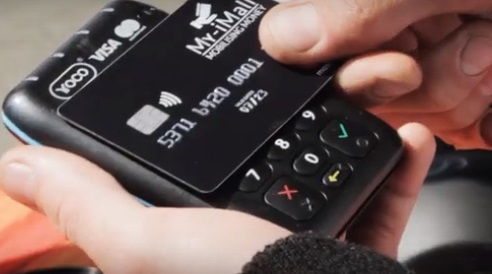We all have them. Those apps we open without thinking. Not because we need anything in particular, but because they feel… safe, in some…
Fintech My-iMali scores investment from Crossfin after crowdfunding campaign fails

SA fintech startup My-iMali has landed an undisclosed amount in investment from fintech investor Crossfin to grow its digital wallet platform.
The raise follows the startup’s failed attempt to raise R25-million through a crowdfunding campaign on Uprise.Africa which concluded last month.
The Pretoria-based startup — which was founded by Casper Kruger, Fran Botha and Matt Goosen in November last year — allows employers to save thousands of rands in bank charges when paying their employees through the new digital wallet platform. All three founders have backgrounds in banking and fintech.
In September, just after the start of the crowdfunding campaign, Kruger told Ventureburn that the startup was in talks with Crossfin to take a stake in the company (see this story).
My-iMali’s investment deal from Crossfin follows the startup’s failed attempt to raise R25m through a crowdfunding campaign
At the time he told Ventureburn that he and Goosen, as well as the company’s four other shareholders had invested R16-million of their own savings in the company.
When pressed today for comment via email, Goosen said he preferred not to disclose the value of the deal or the share that Crossfin — whose portfolio companies include wiGroup, iKhokha, Crossgate and Innervation — has taken
He however confirmed that the deal was concluded within the last two weeks.
‘Save millions in bank charges’
The platform can save business owners thousands of rands in bank charges when they make staff payments — because payments are made into a digital e-wallet, rather than via the banking system.
Those users with e-wallets can opt to draw the cash at any point-of-sale device in stores around the country by swiping a Mastercard debit card that is linked to their e-wallet, or they can send the money to their bank account.
Via the app, e-wallet users can also purchase services such as airtime and electricity and take part in sports betting. It’s through offering these services to users that My-iMali generates a revenue — by getting the services at a bulk discount from service providers before selling them to users on the app.
The startup works with employers to then sign up their employees as users, the startup is also looking to franchise the system to service providers who can then sign up other businesses, while passing on a royalty payment to My-iMali.
Goosen confirmed today that the investment would be used to grow the platform’s user base and number of merchants.
In September, Kruger told Ventureburn the idea with the campaign was to grow the number of users from then 10 000 to 126 000 users within the next three years.
As of 20 November, Goosen said user numbers were sitting at 20 000. In addition, the startup has so far signed up 50 virtual enterprises.
He said the startup itself has 12 permanent staff and 35 temporary staff.
Failed crowdfunding campaign
The news that Crossfin has invested in the startup comes after the startup failed to raise the R25-million it sought in return for a 20% stake in the company, through Uprise.Africa.
The company raised just R160 000 by the time the campaign, which ran for more than 60 days, concluded last month, Uprise.Africa CEO Tabassum Qadir told Ventureburn today.
Qadir pointed out that the campaign had likely failed because Goosen and his team were more focused on closing the deal with Crossfin than on running the crowdfunding campaign, adding that to run a successful crowdfunding campaign demands “a lot of dedication”.
But Goosen put the failure of the Uprise.Africa campaign down to equity crowdfunding being relatively new to South African.
Said Goosen: “We feel that it did bring some awareness to our company and products. Also I think that for an average investor, understanding fintech and exactly what we do may have had an impact.”
While for the average person the startup’s offering might be complicated to grasp — the startup is still hoping that the savings users can make will be enough to win them over. Like this, investors could score big.
Read more: My-iMali looking to raise R25m to save employers thousands of rands in bank charges
*Additional reporting by Ventureburn writer Daniel Mpala
Featured image: My-iMali via YouTube

